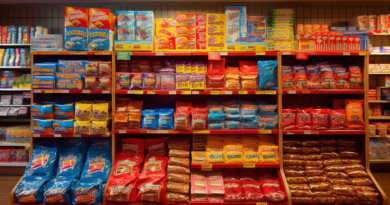Photo by Oziel Gómez on Unsplash
Neste vídeo do canal TED-Ed aprendemos que o cérebro é o responsável por todos os sentimentos frequentemente associados ao amor, como emoção, paixão e desilusão. A jornada da primeira faísca até a última lágrima é guiada por uma sinfonia de neuroquímicos e sistemas cerebrais. Shannon Odell explora o que acontece em seu cérebro quando você se apaixona, como ele reage a um relacionamento e como reage a uma separação.
| Audio | |
|---|---|
Normal | Slow |
| English Transcript | Tradução |
| Love is often described as heartwarming, heart-wrenching and even heartbreaking. | O amor é frequentemente descrito como emocionante, de partir o coração e até comovente. |
| So, what does the brain have to do with it? | Então, o que o cérebro tem a ver com isso? |
| Everything! | Tudo! |
| The journey from first spark to last tear is guided by a symphony of neurochemicals and brain systems. | A jornada da primeira faísca à última lágrima é guiada por uma sinfonia de neuroquímicos e sistemas cerebrais. |
| As you begin to fall for someone, you may find yourself excessively daydreaming about them and wanting to spend more and more time together. | Quando você começa a se apaixonar por alguém, pode se pegar sonhando excessivamente com essa pessoa e querendo passar mais e mais tempo juntos. |
| This first stage of love is what psychologists call infatuation, or passionate love. | Esse primeiro estágio do amor é o que os psicólogos chamam de paixão, ou amor apaixonado. |
| Your new relationship can feel almost intoxicating, and when it comes to the brain, that's not far from the truth. | Seu novo relacionamento pode parecer quase inebriante e, quando se trata do cérebro, isso não está longe da verdade. |
| Infatuated individuals show increased activation in the ventral tegmental area. | Indivíduos apaixonados mostram ativação aumentada na área tegmental ventral. |
| The VTA is the reward-processing and motivation hub of the brain, firing when you do things like eat a sweet treat, quench your thirst, or in more extreme cases, take drugs of abuse. | O VTA é o centro de processamento de recompensa e motivação do cérebro, disparando quando você faz coisas como comer um doce, matar a sede ou, em casos mais extremos, usar drogas de abuso. |
| Activation releases the "feel good" neurotransmitter dopamine, teaching your brain to repeat behaviors in anticipation of receiving the same initial reward. | A ativação libera a dopamina do neurotransmissor "sentir-se bem", ensinando seu cérebro a repetir comportamentos na expectativa de receber a mesma recompensa inicial. |
| This increased VTA activity is the reason love's not only euphoric, but also draws you towards your new partner. | Esse aumento da atividade VTA é a razão pela qual o amor não é apenas eufórico, mas também atrai você para seu novo parceiro. |
| At this first stage, it may be hard to see any faults in your new perfect partner. | Nesta primeira fase, pode ser difícil ver falhas em seu novo parceiro perfeito. |
| This haze is thanks to love's influence on higher cortical brain regions. | Essa confusão se deve à influência do amor nas regiões corticais superiores do cérebro. |
| Some newly infatuated individuals show decreased activity in the brain's cognitive center, the prefrontal cortex. | Alguns indivíduos recentemente apaixonados mostram diminuição da atividade no centro cognitivo do cérebro, o córtex pré-frontal. |
| As activation of this region allows us to engage in critical thought and pass judgment, it's not surprising we tend to see new relationships through rose-colored glasses. | Como a ativação dessa região nos permite ter um pensamento crítico e fazer julgamentos, não é de surpreender que tenhamos a tendência de ver novos relacionamentos através de lentes cor-de-rosa. |
| While this first stage of love can be an intense rollercoaster of emotions and brain activity, it typically only lasts a few months, making way for the more long-lasting stage of love, known as attachment, or compassionate love. | Embora esse primeiro estágio do amor possa ser uma intensa montanha-russa de emoções e atividade cerebral, normalmente dura apenas alguns meses, abrindo caminho para o estágio mais duradouro do amor, conhecido como apego ou amor compassivo. |
| As your relationship develops, you may feel more relaxed and committed to your partner thanks in large part to two hormones: oxytocin and vasopressin. | À medida que seu relacionamento se desenvolve, você pode se sentir mais relaxado e comprometido com seu parceiro, em grande parte graças a dois hormônios: a ocitocina e a vasopressina. |
| Known as pair-bonding hormones, they signal trust, feelings of social support and attachment. | Conhecidos como hormônios de ligação de pares, eles sinalizam confiança, sentimentos de apoio social e apego. |
| In this way, romantic love is not unlike other forms of love, as these hormones also help bond families and friendships. | Dessa forma, o amor romântico não é diferente de outras formas de amor, pois esses hormônios também ajudam a unir famílias e amizades. |
| Further, oxytocin can inhibit the release of stress hormones, which is why spending time with a loved one can feel so relaxing. | Além disso, a ocitocina pode inibir a liberação de hormônios do estresse, e é por isso que passar um tempo com um ente querido pode ser tão relaxante. |
| As early love's suspension of judgment fades, it can be replaced by a more honest understanding and deeper connection. | À medida que a suspensão do julgamento do amor inicial desaparece, ela pode ser substituída por uma compreensão mais honesta e uma conexão mais profunda. |
| Alternatively, as your rose-colored glasses begin to lose their tint, problems in your relationship may become more evident. | Como alternativa, à medida que seus óculos cor-de-rosa começam a perder a tonalidade, os problemas em seu relacionamento podem se tornar mais evidentes. |
| No matter the reason a relationship ends, we can blame the pain that accompanies heartbreak on the brain. | Não importa o motivo pelo qual um relacionamento termina, podemos culpar a dor que acompanha o desgosto no cérebro. |
| The distress of a breakup activates the insular cortex, a region that processes pain, both physical, like spraining your ankle, as well as social, like the feelings of rejection. | A angústia de um rompimento ativa o córtex insular, região que processa a dor, tanto física, como torcer o tornozelo, quanto social, como o sentimento de rejeição. |
| As days pass, you may find yourself once again daydreaming about or craving contact with your lost partner. | Com o passar dos dias, você pode se ver mais uma vez sonhando acordado ou desejando contato com seu parceiro perdido. |
| The drive to reach out may feel overwhelming, like an extreme hunger or thirst. | O desejo de estender a mão pode parecer avassalador, como uma fome ou sede extrema. |
| When looking at photos of a former partner, heartbroken individuals again show increased activity in the VTA, the motivation and reward center that drove feelings of longing during the initial stages of the relationship. | Ao olhar para as fotos de um ex-parceiro, os indivíduos com o coração partido mostram novamente uma atividade aumentada no VTA, o centro de motivação e recompensa que gerou sentimentos de saudade durante os estágios iniciais do relacionamento. |
| This emotional whirlwind also likely activates your body's alarm system, the stress axis, leaving you feeling shaken and restless. | Esse turbilhão emocional também provavelmente ativa o sistema de alarme do seu corpo, o eixo do estresse, deixando você abalado e inquieto. |
| As time goes on, higher cortical regions which oversee reasoning and impulse control, can pump the brakes on this distress and craving signaling. | Com o passar do tempo, as regiões corticais superiores que supervisionam o raciocínio e o controle dos impulsos podem frear essa sinalização de angústia e desejo. |
| Given that these regions are still maturing and making connections through adolescence, it's no wonder that first heartbreak can feel particularly agonizing. | Dado que essas regiões ainda estão amadurecendo e fazendo conexões durante a adolescência, não é de admirar que o primeiro desgosto possa parecer particularmente agonizante. |
| Activities like exercise, spending time with friends, or even listening to your favorite song can tame this heartbreak stress response, while also triggering the release of feel good neurotransmitter dopamine. | Atividades como exercícios, passar tempo com os amigos ou até mesmo ouvir sua música favorita podem domar essa resposta ao estresse do coração partido, ao mesmo tempo em que desencadeiam a liberação do neurotransmissor dopamina do bem-estar. |
| And given time and the support, most can heal and learn from even the most devastating heartbreak. | E com tempo e apoio, a maioria pode se curar e aprender até mesmo com a desilusão amorosa mais devastadora. |
Contagem de palavras
A tabela abaixo exibe as palavras encontradas neste vídeo, bem como o número de vezes em que aparecem.
Veja também: Para que serve esta tabela?
| Freq. | Palavra | Freq. | Palavra | Freq. | Palavra |
|---|---|---|---|---|---|
| 31 | the | 21 | and | 19 | of |
| 15 | to | 13 | your | 13 | as |
| 11 | is | 10 | this | 10 | in |
| 10 | can | 9 | a | 8 | love |
| 8 | brain | 7 | you | 7 | more |
| 7 | it | 7 | feel | 6 | that |
| 6 | or | 6 | may | 5 | time |
| 5 | relationship | 5 | partner | 5 | like |
| 5 | first | 4 | with | 4 | stage |
| 4 | on | 4 | not | 4 | new |
| 4 | hormones | 4 | heartbreak | 4 | also |
| 4 | activity | 3 | when | 3 | vta |
| 3 | stress | 3 | show | 3 | reward |
| 3 | regions | 3 | love's | 3 | individuals |
| 3 | increased | 3 | from | 3 | feelings |
| 3 | even | 3 | be | 3 | activation |
| 2 | yourself | 2 | while | 2 | which |
| 2 | what | 2 | we | 2 | way |
| 2 | through | 2 | thirst | 2 | these |
| 2 | thanks | 2 | support | 2 | spending |
| 2 | social | 2 | so | 2 | see |
| 2 | rose | 2 | release | 2 | region |
| 2 | reason | 2 | pass | 2 | pain |
| 2 | oxytocin | 2 | only | 2 | no |
| 2 | neurotransmitter | 2 | motivation | 2 | most |
| 2 | making | 2 | known | 2 | judgment |
| 2 | initial | 2 | infatuated | 2 | higher |
| 2 | good | 2 | glasses | 2 | given |
| 2 | for | 2 | find | 2 | extreme |
| 2 | dopamine | 2 | do | 2 | distress |
| 2 | daydreaming | 2 | craving | 2 | cortical |
| 2 | cortex | 2 | colored | 2 | center |
| 2 | by | 2 | begin | 2 | attachment |
| 2 | at | 2 | an | 2 | again |
| 2 | activates | 2 | about | 1 | wrenching |
| 1 | wonder | 1 | why | 1 | whirlwind |
| 1 | well | 1 | wanting | 1 | ventral |
| 1 | vasopressin | 1 | us | 1 | unlike |
| 1 | understanding | 1 | typically | 1 | two |
| 1 | truth | 1 | trust | 1 | triggering |
| 1 | treat | 1 | towards | 1 | together |
| 1 | tint | 1 | thought | 1 | things |
| 1 | they | 1 | them | 1 | their |
| 1 | tend | 1 | tegmental | 1 | tear |
| 1 | teaching | 1 | tame | 1 | take |
| 1 | systems | 1 | system | 1 | symphony |
| 1 | sweet | 1 | suspension | 1 | surprising |
| 1 | still | 1 | stages | 1 | spraining |
| 1 | spend | 1 | spark | 1 | song |
| 1 | someone | 1 | some | 1 | signaling |
| 1 | signal | 1 | shaken | 1 | same |
| 1 | romantic | 1 | rollercoaster | 1 | restless |
| 1 | response | 1 | replaced | 1 | repeat |
| 1 | releases | 1 | relaxing | 1 | relaxed |
| 1 | relationships | 1 | rejection | 1 | receiving |
| 1 | reasoning | 1 | reach | 1 | quench |
| 1 | pump | 1 | psychologists | 1 | processing |
| 1 | processes | 1 | problems | 1 | prefrontal |
| 1 | physical | 1 | photos | 1 | perfect |
| 1 | passionate | 1 | particularly | 1 | part |
| 1 | pair | 1 | overwhelming | 1 | oversee |
| 1 | out | 1 | other | 1 | one |
| 1 | once | 1 | often | 1 | newly |
| 1 | neurochemicals | 1 | months | 1 | maturing |
| 1 | matter | 1 | loved | 1 | lost |
| 1 | lose | 1 | looking | 1 | longing |
| 1 | long | 1 | listening | 1 | likely |
| 1 | leaving | 1 | learn | 1 | lasts |
| 1 | lasting | 1 | last | 1 | large |
| 1 | journey | 1 | intoxicating | 1 | intense |
| 1 | insular | 1 | inhibit | 1 | influence |
| 1 | infatuation | 1 | impulse | 1 | hunger |
| 1 | hub | 1 | honest | 1 | help |
| 1 | heartwarming | 1 | heartbroken | 1 | heartbreaking |
| 1 | heart | 1 | heal | 1 | haze |
| 1 | have | 1 | hard | 1 | guided |
| 1 | goes | 1 | further | 1 | friendships |
| 1 | friends | 1 | forms | 1 | former |
| 1 | firing | 1 | few | 1 | feeling |
| 1 | favorite | 1 | faults | 1 | far |
| 1 | families | 1 | fall | 1 | fades |
| 1 | exercise | 1 | excessively | 1 | evident |
| 1 | everything | 1 | euphoric | 1 | engage |
| 1 | ends | 1 | emotions | 1 | emotional |
| 1 | eat | 1 | early | 1 | during |
| 1 | drugs | 1 | drove | 1 | drive |
| 1 | draws | 1 | does | 1 | develops |
| 1 | devastating | 1 | described | 1 | deeper |
| 1 | decreased | 1 | days | 1 | critical |
| 1 | control | 1 | contact | 1 | connections |
| 1 | connection | 1 | compassionate | 1 | committed |
| 1 | comes | 1 | cognitive | 1 | cases |
| 1 | call | 1 | but | 1 | breakup |
| 1 | brakes | 1 | brain's | 1 | both |
| 1 | bonding | 1 | bond | 1 | body's |
| 1 | blame | 1 | behaviors | 1 | become |
| 1 | axis | 1 | area | 1 | are |
| 1 | any | 1 | anticipation | 1 | ankle |
| 1 | alternatively | 1 | almost | 1 | allows |
| 1 | alarm | 1 | agonizing | 1 | adolescence |
| 1 | activities | 1 | accompanies | 1 | abuse |











Excelente